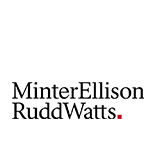Operators in the New Zealand agricultural sector are likely to have heard of blockchain, the technology that underpins Bitcoin, and will be starting to see the very real application for blockchain in supply chain management. As the interest in blockchain technology increases in numerous sectors, it is agri-business which is one of the sectors that seems set to see significant transformational benefits from its adoption.
This article provides a short summary of what blockchain-based supply chain management is and what it might mean for the industry, particularly in the New Zealand context.
Blockchain – distributed and unalterable record keeping
Blockchain is a database that stores information on a growing chain of blocks that is replicated and distributed around a decentralised network of participating computers. Transactions are permitted once a consensus is reached across the network that the transaction is legitimate, then a block is added to the chain. The blockchain maintains a permanent and unalterable record of every transaction, and this is transparent to the participants.
Why blockchain?
Blockchain is considered by many to be revolutionary because it enables trust to be established between unknown third parties, and is cost-efficient and fast in enabling transactions (particularly in comparison to traditional transactional methods).
In the agri-sector, this allows friction, risk, time and cost to be removed or reduced from the supply chain, and can help build brand value and increase margins.
Tracing the provenance of products
Consumers, and notably consumers in the important Chinese market, are increasingly concerned with food safety. A premium can be earned on products from trusted brands which New Zealand should be well placed to capitalise on. The challenge is in how to establish confidence that products on the market shelves are what they appear to be.
Blockchain can be used to trace a product from its origin to the point of consumption, or from ‘farm to table’. Provenance is tracked through the creation of a token at the source that is transferred through the supply chain as a product is transported around the real world. At any point in the supply chain the blockchain can be accessed to verify where a product came from.
This traceability is beneficial for suppliers, retailers and consumers, in that it will:
- Minimise counterfeit goods
- Verify product claims, such as ‘organic’, ‘ethical’ and ‘sustainably produced’
- Increase trust and verify food safety
- Link consumers to their products
- Verify the accuracy of information, minimising the need for certifications and regulations
The supply chain made simple
Blockchain can also simplify the complex and inefficient agricultural supply chain. In a supply chain there are numerous players, who are often disconnected and distrusting of one another.
Blockchain can solve some of these issues through the use of ‘smart contracts’, being agreements represented by programmed instructions that sit on the blockchain and automatically execute when certain events happen. For example, payment can be made simultaneously and automatically upon delivery and transfer of title, and without an escrow agent taking a cut. As the blockchain can verify that funds are available at the time physical product is released to the third party, counterparty risk can be eliminated.
The blockchain can also offer a wealth of information which can be accessed by the supply chain participants, providing insights into product inputs, transportation routes and timings, and consumer preferences. Blockchain could provide suppliers, especially those in remote rural areas, with access to market information allowing them to obtain a fair price for their goods. Friction at international borders could be reduced where authorities have access to trustworthy data. Blockchain can provide a reliable and complete history of a product, enabling any issues to be traced back to the point of origin.
In addition, as so much digital information is available from the blockchain, administrative processes will be able to be streamlined which will result in more accurate data, efficiencies and cost savings.
Real-time financing
Traditional financing options available to agri-businesses involve accessing funds once specified hurdles are overcome and are charged at rates that incorporate the financier’s perceived risk of default, which is typically based on limited information. Blockchain can be integrated with machinery and data collection equipment to record and store information on an asset in real time, which can then be accessed by financiers. This provides financiers with far more accurate information on the farm’s assets, making the finance less risky and therefore cheaper. It will also allow funds to be provided in real time as and when the assets grow.
Conclusion
Partnerships have been established in this area that are working on piloting blockchain-based supply management, some international and some with New Zealand participation. There is a way to go before we see widespread commercial adoption of the technology, and ultimately there remains the question of which platform or platforms will become the market standard which will enable the promise of access to an integrated database to be fulfilled.
As with all new technologies, the finer points are still being worked out, and until we reach the stage of complete automation there is still a role (and a risk) associated with the inputting of data by humans and the inaccuracies this may create.
Nevertheless, blockchain-based supply chain management (and other blockchain applications) holds real promise for the agri-sector and sector participants would be wise to take an interest in how this technology develops.
The above is just a sample of the ways in which blockchain might be used by agri-businesses. If you would like further information or are looking to making some changes to your business, please contact one of our specialists.
Source: MinterEllisonRuddWatts
Author: Sonya Forbes






